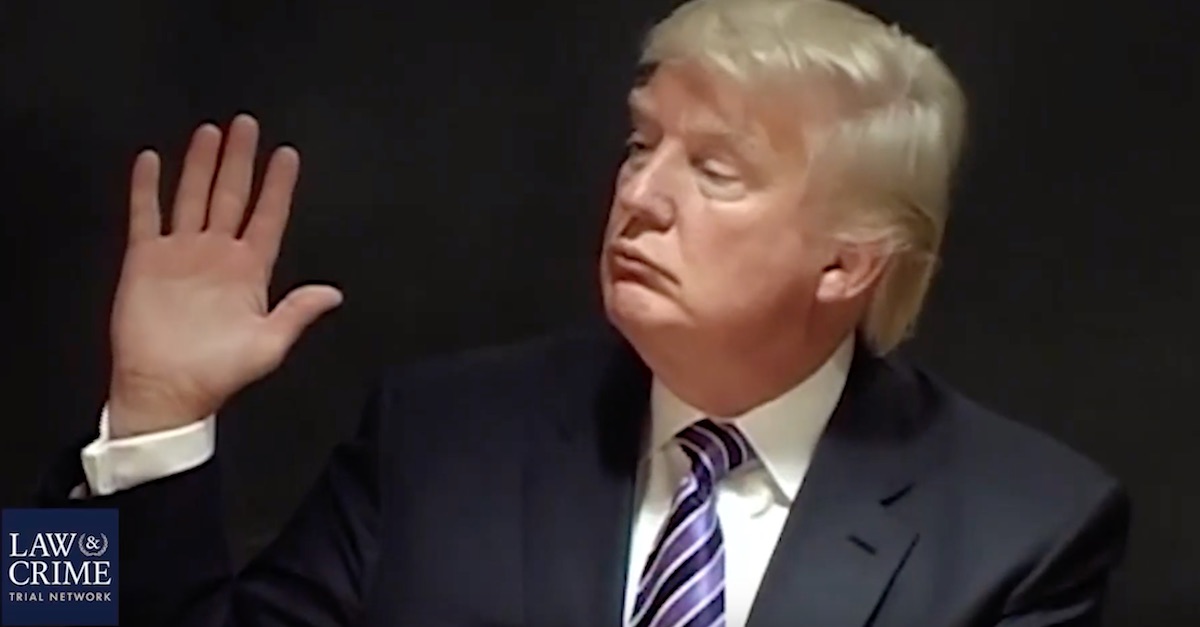
Millions of Americans have been on Impeachment Watch since the moment President Donald Trump took office. Now that “if” has transformed to “when,” more specific details about impeachment proceedings are beginning to take shape. From the looks of it, the historic impeachment trial of America’s 45th president is going to be as disastrous as Trump’s presidency itself has been.
1. Mitch McConnell is hell-bent on making the Senate trial procedurally unfair.
Because impeachment isn’t a strictly legal process, the rules are a bit amorphous. The Constitution allows the Senate to build its plane during flight. Party leaders can attempt to pass resolutions reflecting their procedural agreements; if unsuccessful, a simple majority of 51 senators can vote on the rules of the game.
While there’s nothing inherently biased about the process, Senate Majority Leader Mitch McConnell (R-Ky.) has gone on record saying that he will be in “total coordination” with the White House on development of the procedural rules. That’s like a jury collaborating with a defense lawyer to decide which witnesses will be permitted to testify. That kind of thing would be laughable if we were talking about a courtroom procedure, because it so obviously strikes at the heart of fairness and neutrality. Impeachment trials certainly differ from legal ones, but basic fairness really should be a reasonable expectation.
2. Trump is looking for a lawyer who is great at showboating.
President Trump seems less than confident that White House counsel Pat Cipollone is up to the task of being his champion at trial. For Trump, it’s not about Cipollone’s ability as a lawyer — but as a showman. Cipollone has been White House counsel since December 2018, and has been squarely in Trump’s corner, calling the impeachment process thus far, “completely baseless,” and violative of “basic principles of due process and fundamental fairness.” Cipollone also has significant litigation experience, having served as a clerk for the United States Court of Appeals for the Sixth Circuit, an assistant to Attorney General William Barr in the early 90s, and a partner at law firm Kirkland & Ellis. What Cipollone lacking, though, is a resume packed with Fox News appearances. On those grounds, the president is unconvinced that Cipollone should join the cast for the extended run of Impeachment Trial 2020; Trump mentioned that he was hoping for a, “theatrical defense,” the drama of which may exceed Cipollone’s acting chops. Maybe that’s where the Twitter account will come in.
3. There’s a major push to keep fact witnesses away from the trial.
Under the Constitution, articles of impeachment are “tried” before the Senate as “jurors” and with the Chief Justice of the Supreme Court (John Roberts, in this case) presiding over the proceedings. Despite the lack of formal procedural or evidentiary rules, it sounds a lot like a trial in a civil or criminal legal proceeding. However, because both parties are to agree on the procedural rules of the Senate trial, the evidence introduced can be severely limited. That’s exactly what happened during the last presidential impeachment.
President Bill Clinton’s impeachment trial focused primarily on his statements about his relationship with Monica Lewinsky. Per agreement between Dems and the GOP, no fact witnesses testified at trial. Republicans are poised to make a similar demand regarding Trump’s trial in the Senate. The circumstances, however, are quite different. The Clinton proceedings came immediately after an exhaustive investigation lead by Kenneth Starr. That investigation, along with supporting documentation, did include testimony from those directly involved in the allegations of Clinton’s wrongdoing. By contrast, those closest to the matters at hand in Trump’s impeachment have not undergone depositions or provided official statements.
4. Republicans aren’t alone in disclaiming responsibility for keeping an open mind.
Senator and Trump Sycophant in Chief Lindsey Graham (R-S.C.) has already pledged to not even, “pretend to be a fair juror,” but he isn’t alone in his plans to pre-judge. Senator Elizabeth Warren (D-Mass.) and other Democrats have already committed to voting to convict the president.
Federal officials don’t usually score political points by boasting that they’d be down for sentencing a person before an indictment had even been handed down. But things are a bit different with impeachment, and partisanship is one of the inherent problems. As a political (as opposed to legal) process, expectations are different. Still, most Americans would likely expect that the Constitutionally-mandated “Senate trial” is meant to proceed before a body of open-minded individuals who at least purport to evaluate the evidence adduced.
[Image via Law&Crime Network screengrab]
This is an opinion piece. The views expressed in this article are those of just the author.